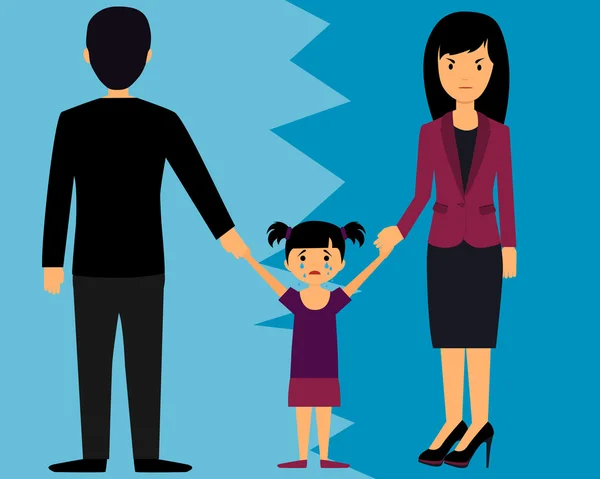Children of Parents that Abuse Alcohol and What's Going on Inside Their Heads
Children of Parents that Abuse Alcohol and What's Going on Inside Their Heads
You might think you know what children go through in households with parents that abuse alcohol but do you?
According to the Journal of Child and Family Studies, "the 2007 National Survey on Drug Use and Health reports that 8.3 million children live with at least one parent who abused or was dependent on alcohol or an illicit drug during the past year."
Alcohol abuse, defined by the American Addiction Centers, "is characterized by an inability to stop drinking despite the social, occupational, and health problems it causes." When a parent abuses alcohol, not only is the spouse affected but the child as well. A child with a parent that abuses alcohol is exposed to unpredictable behavior, arguments between parents, and hectic environments. The effects of parental alcohol abuse on children can range from mental, physical, emotional, and financial issues. While all of these effects can be damaging, mental effects are the most damaging but can be maintained.
According to NY Daily News, "A government report claims one in ten children in the United States has an alcoholic mother or father." All of these children are at risk for mental health issues. They can range from anxiety and depression to personality disorders. The effects of a child growing up with a parent abusing alcohol can stay with them for a lifetime. Their relationships with others, themselves, and parents can all be damaged because of one or both parents' reliance on alcohol.
A child growing up in this type of environment can result in a very negative effect on their mental health. Verywell Mind says a child can end up with trust issues, constantly seek approval from others and judge themselves without mercy". All three of these effects on a child can damage their mental health and aspect on the world itself. Could you imagine a child growing up constantly judging themselves and wondering why they were not good enough for their parent to stop drinking? This is the cruel truth behind parental alcohol abuse.
The three effects, as mentioned previously, are just the beginning. A child with trust issues, constantly seeking approval, and judges themselves without mercy can lead to substantial mental health issues. Outcomes such as depression, anxiety, low self-esteem, and substance abuse can form from parental alcohol abuse.
Myself, being a child from a parent that abused alcohol, have experienced some of these effects. And it sucked. The constant worrying and wondering if a fight would transpire between my parents caused an outbreak of anxiety and trust issues. Growing up in a toxic household made my anxiety so bad at times that I would not want to leave the house. I would constantly worry over whether or not my parents would get into a fight that night. My leg would start to bounce up and down, and I would get a pit in my stomach until my parent arrived home from a night of drinking. The effects of parental alcohol abuse on children are not just something that can be physically seen. There are a lot of mental aspects that contribute and can stay with them as they go through life.
On the other hand, there are other effects of parental alcohol abuse besides mental health issues. Some could say that the emotional, financial, and physical effects are more damaging than the mental effects. Children growing up in a household with an alcoholic parent are susceptible to domestic abuse, physical abuse, and verbal abuse. All three of these types of abuse are terrible in their ways but can develop into mental health issues such as depression and anxiety. Also, financial stress is a situation for children and families dealing with parental alcohol abuse. A parent abusing alcohol can lead to further addictions such as gambling that can cause a strain on money and financial income. While all of these effects of parental alcohol abuse are damaging, they can transpire into mental health issues that can stay with the child for a lifetime. Overall, making mental health issues more damaging for children with parents that abuse alcohol.
 |
| A person abusing alcohol |
While it might seem like nothing can be done when a parent abuses alcohol, there are many different ways to cope. Because let's be honest, you cannot get through this alone. To help children cope with the mental effects, TeensHealth says, children should find a designated safe place or support group and build good habits. Allowing the child to have someone to confide in makes the stress of the situation not feel as heavy. In addition, it makes the child not feel as alone, especially if they are in a support group with other children going through the same situation.
Building good habits is very important for children with parents that abuse alcohol. According to American Addiction Centers, "Children of alcoholics are 3 to 4 times more likely to develop an alcohol use disorder (AUD) than those without alcoholic parents". Allowing the child to express and better understand their emotions will help to prevent them from abusing alcohol.
All of these reasons are why parental alcohol abuse is most detrimental to a child's mental health. Putting a child through these different situations makes their view of the world messed up. The child already being exposed to toxic behaviors towards alcohol puts them at a higher risk for abusing alcohol themselves. The stress of dealing with a parent that abuses alcohol causes mental health issues that can damage relationships with others and the parent. I know it did for me. Learning more about parental alcohol abuse and its effects on children can cause people to look more inward. Just because someone looks fine on the outside does not mean they are alright on the inside. You never know what people are going through.



Comments
Post a Comment